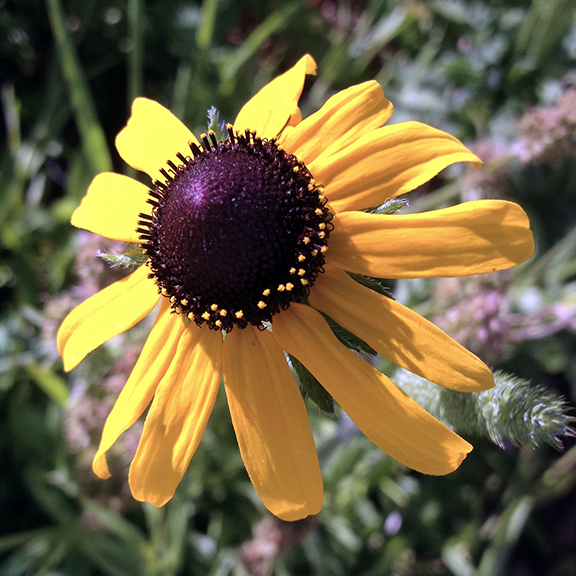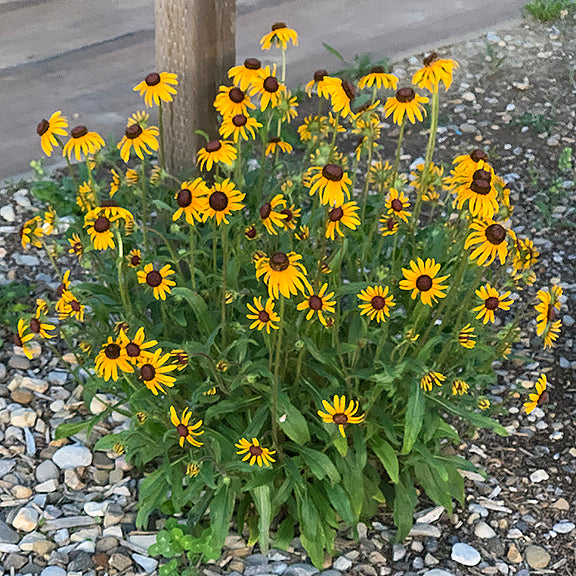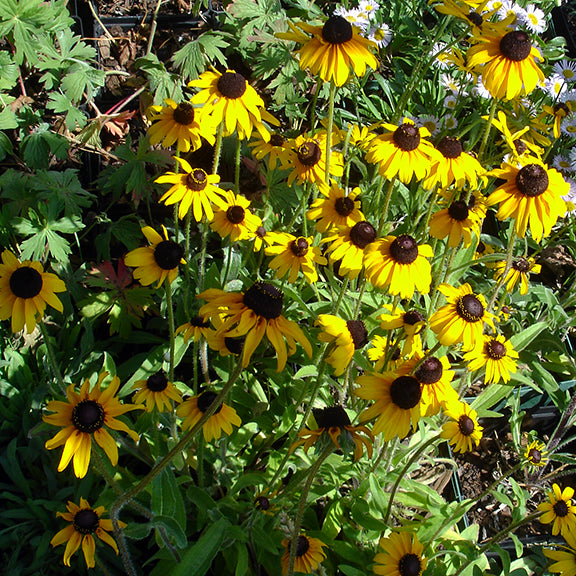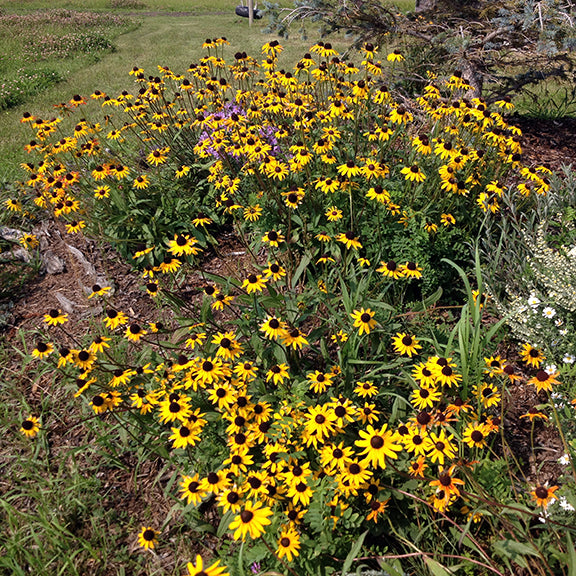Wild About Flowers
Rudbeckia hirta - Black-Eyed Susan
Rudbeckia hirta - Black-Eyed Susan
Couldn't load pickup availability
Black-Eyed Susan is a bold and cheerful perennial that brightens both urban and rural landscapes with its golden-yellow, daisy-like flowers and dark central cones. Blooming from mid-summer into fall, it provides a long-lasting nectar source for bees and butterflies, while its seed heads sustain granivorous birds such as goldfinches and sparrows in the fall and winter. Its vibrant blooms, sturdy stems, and ability to naturalize easily make Black-Eyed Susan a standout in pollinator-friendly plantings, sunny gardens, wildflower meadows, and resilient landscapes.
Black-Eyed Susan thrives in prairies, open woodlands, roadsides, and disturbed areas. Drought-tolerant and adaptable, this hardy native grows well in well-drained soils, to dry, gravelly substrates, making it a perfect choice for self-sustaining, low-maintenance gardens. Mature plants are deer-resistant, as the coarse, hairy leaves deter browsing, though young seedlings may be nibbled.
Bloom Times & Plant Sizes
Bloom Times & Plant Sizes
Important Information - The "Bloom Period" is an indicator of the time period within which the wildflowers will bloom and does not describe the time period that a single plant will bloom. The "Sizes" listed are intended to be a general guideline to consult during plant selection. - Plant growth and bloom times will vary depending on geographical location & individual site conditions.
Edible & Medicinal Info Disclaimer
Edible & Medicinal Info Disclaimer
The Edible & Medicinal information on this site is for informational purposes only and should not be acted on without thorough research and professional guidance. We are not responsible for any adverse effects resulting from the use of or misidentification of plants.
Share




Plant Specifics
Seeds Per Pack
Seeds Per Package: 50
Light Conditions
- Sun
- Part Shade
Soil Conditions
- Well Drained
- Loam
- Sandy
- Gravelly
- Dry
- Clay
- Seasonally Moist
Height
- 12" - 24"
- 24" - 36"
Width
- Under 12"
- 12" - 24"
Bloom Colour
- Yellow
Month of Bloom
- July
- August
- Septemeber
Vigorousness
- Moderate
- Fast
Deer Resistance
- High
Features
- Birds
- Butterflies
- Bees
- Long Bloom Time
- Attractive Seed Heads
- Fall Color
- Urban Spaces
- Rural Spaces
- Medicinal Properties
- Good in Containers
Chinook Exposure
- Fully Exposed
Distribution Info
Rudbeckia hirta is native to grasslands, open woodlands, and disturbed areas across the Canada provinces and much of the U.S.. It thrives in open prairies, meadows, roadsides, and disturbed sites, often colonizing dry to mesic soils.
Traditional Edible & Medicinal Info
Traditionally, Indigenous peoples have used the roots of Rudbeckia hirta to make infusions for treating colds, dropsy, and worms in children, as well as external washes for sores, snake bites, and swelling. Additionally, the root juice has been used as drops to treat earaches.




